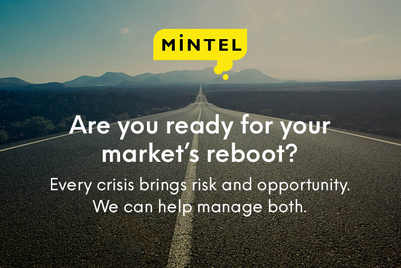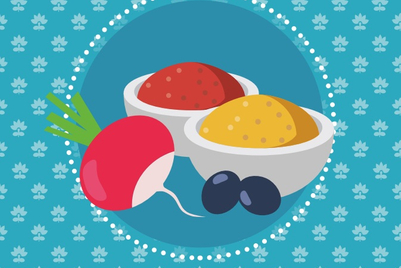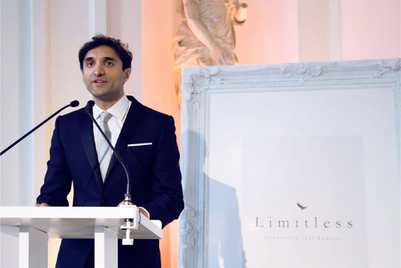Mintel’s latest report on ‘Indian Lifestyles’ highlights that consumers in India may appear to have quite humble ambitions, but they can have some profound repercussions.
Let’s begin by looking at the focus on health, safety and more family time. The COVID-19 pandemic has certainly put health into stark perspective. According to Mintel’s COVID-19 tracker data, worry about infection reached a height of 85% of Indian consumers back in April and May, but that has hardly abated, and still 73% remain either worried or extremely so, and just as many remain worried about the effect of the pandemic on their lifestyles.
This is not, perhaps, unexpected given the continued high case-rate and economic fallout. But our duty as analysts is to look beyond the here and now, and look at how this period has changed consumer mind-sets into the ‘next normal’. Consumers are looking beyond the immediate health and safety issues to also look at how they can thrive while the economic repercussions of COVID-19 sort themselves out.
Thriving amidst challenge
Thriving under lock-down has not been easy. According to the report, Indians have found it hard to balance career and family responsibilities when working from home – no easy task for any of us even in ‘normal’ times. This has especially impacted women, many of whom are balancing both work careers and being the primary childcare provider. But balancing many normally separate life functions, blending them together, is precisely what most Indians have had to do, and that has changed how they do most things now. This has accelerated online shopping, even for groceries and religious products. Lower-tier city consumers are demanding the same as their metro peers for home delivery and online services, including entertainment. Everyone is learning more about diet and nutrition, tapping into new science as well as age-old tradition. This has created opportunities for brands to sell products that help aid nutrition, hygiene and build immunity, of course, but also raised demand for home appliances, furnishings and décor as people reimagine their homes – having been stuck there for so long.
Thriving isn’t just about making money. Indians’ ambitions also include more family time, which lock -down has delivered in perhaps over-abundance. But it has changed home dynamics. In Mintel’s Trends piece “Asia-Pacific: COVID-19 Anxiety & the Economic Outlook ” it was noted how India Gate Foods was celebrating gender-neutral homemakers during the pandemic. Traditional assumptions are being challenged in India, and not just around gender roles, but also how Indians live, work and play.
Small steps but big ideas
The changes are not always obvious, or large. Many small changes, all compressed into a short period, however, do create longer-lasting significant shifts. This brings us to the last, yet certainly not least, of the ambitions of Indian consumers that Mintel has identified – a more sustainable environment. This we know has no grand, single answer, but requires many small, local innovations and changes in behaviour (both consumer and brand) to achieve. Mintel has seen a shift in which drivers are motivating Indian consumer behaviour during this year. Sustainability remains as important. Localism has risen, along with the government initiative of #VocalForLocal. Budgeting has become a necessity, while convenience has shifted its meaning to online sourcing, local delivery and demanding brands help consumers to offer better information upon which to make purchase decisions.
These shifts have found themselves reflected in brand innovations that tap into the demand for localism, sustainability and budget. And this demand is not at the sole discretion of big brands to respond to. For instance, Mr Sabapathy is the owner of the tea stall in Madurai that encapsulated localism, sustainability and budget all in the cups of tea he serves by serving his INR20/cup tea in zero-waste edible cups supplied by Edco India, a Hyderabad-based manufacturer of biscuit and wafer products. He claims to sell 500 such cups each day!
You don’t have to be an established brand either. For example, in its recent campaign video titled ‘Our food is screwed’, food start-up TWT highlighted the true ingredients in its products in order to be transparent about the hidden truths behind packaged foods. This first ever advertisement for TWT aims to act as a mirror to the malpractices that food giants follow, bust food myths and call out inconvenient food labelling and thus taking a strong moral stance to stand out. There is also a footwear brand Fizzy Goblet, which launched a campaign to support education for underprivileged girls, called #GirlsSupportGirls, with the promise that for sale of each gift box it will support one year of education for a girl from economically weaker sections of society.
Profound repercussions
Seemingly humble ambitions and slight shifts in consumer behaviour are easy to overlook, but collectively, and cumulatively, they have a profound effect over time, changing the expectations consumers have of brands, their products and services. These small changes in consumers are being reflected in similarly small steps that promote profoundly significant ideas, coming from local Indian and international brands.
These shifts are a response to changes in how Indian consumers are demanding brands to help them. They want brands to offer affordable, quality products and services to help balance budgets towards achieving their ambitions. They want brands to deliver products and services that help create occasions for quality time with loved ones, and improve efficiency at work and home to create more quality family time. They want brands to offer value, safety and health benefits to meet their health concerns. All things consumers want for themselves.
But further than this, they want to buy from moral brands, that seek not just to make profits, but also offer a way to achieve a better, more sustainable and enjoyable future for everyone in Indian society.



.jpg&h=334&w=500&q=100&v=20250320&c=1)
.jpg&h=334&w=500&q=100&v=20250320&c=1)

.jpg&h=334&w=500&q=100&v=20250320&c=1)


.jpg&h=334&w=500&q=100&v=20250320&c=1)


.jpg&h=334&w=500&q=100&v=20250320&c=1)





.jpg&h=268&w=401&q=100&v=20250320&c=1)
.jpg&h=268&w=401&q=100&v=20250320&c=1)
